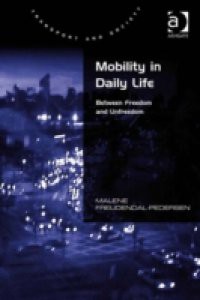Why do we choose specific modes of transport and what are the perceived rationalities for our choice? How are different theoretical concepts within mobility research actually perceived and lived in everyday life? At this book's core is a conceptual and empirical contribution to critical mobility research. It focuses on the tension between freedom and unfreedom, articulated through the dichotomy between individuality and community, as well as critical perspectives on the multitude of unintended consequences of mobility. In a range of everyday life narratives, this tension is analyzed through the concept of 'structural stories'. In teasing out the ambivalences of late modern everyday life, Malene Freudendal-Pedersen exposes how mobility both generates and helps to overcome and live with these ambivalences.

